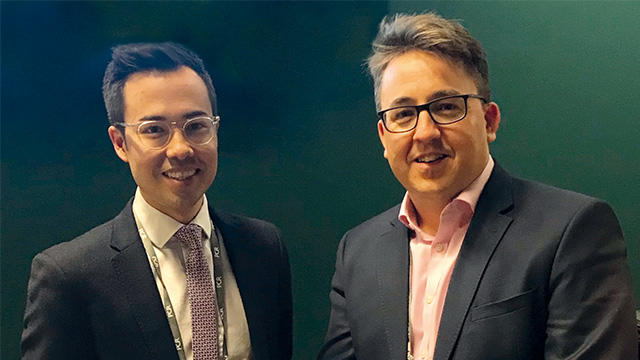Interview with Christopher Cook and his mentor Justin Davies
Chris Cook graduated from University College London, UK in 2009. He is a Medical Research Council (MRC) Research Fellow at Imperial College London, where his primary research interests are in coronary physiology and invasive haemodynamics.
What were the key attributes that you looked for when choosing a mentor?
For me, a mentor had to be dynamic, with disruptive ideas that questioned established thinking, and a clear vision - someone who could combine scientific discovery with innovation.
What characteristics are effective in a mentor?
A good mentor needs to direct but not micromanage. They should also push you to grow scientifically. And the best mentor will be your advocate—promoting you and supporting your development, now and in the future.

Were there specific skills or attributes that you sought to develop using your mentor’s help?
I wanted to be able to challenge established thinking, and in terms of specific skills, I wanted to explore aspects of innovation such as cutting edge computational analysis and software development.
What is the most important advice your mentor has given you?
Always challenge the status quo and never give up!
Q&A with Justin Davies
What was your experience of mentoring Chris Cook like?
Superb! Chris approached me when he first arrived at Hammersmith. Within 30 seconds I could see that he was an outstanding communicator with a super future. Chris is very driven and is able to both follow and challenge advice. This is a key quality, which if nurtured, can develop into a powerful working relationship between a mentor and trainee.
What makes a successful mentor–training fellow relationship?
It is essential that the trainee has a passion for the subject matter. Both mentor and trainee must feel that they are gaining something, whether this be knowledge, advice or hard work, and be prepared to shift the balance as the trainee becomes more experienced. it is also important that the mentor never fears the success of the trainee.
When you were starting out in your career, what was the best advice you were given by a mentor? What advice do you offer your training fellows?
The advice given to me was to always employ people who are better than you!
I always tell my trainees: keep calm, work hard, don’t respond to rumours.
How do you get the best out of the training fellows you have mentored?
Give the trainees support, but also space to exercise and develop their independence.
Has being a mentor made a difference to your professional career or working relationships?
I have had the opportunity of mentoring and then becoming a colleague to several very successful figures in interventional cardiology. Each has been a different experience and has required me, as a mentor, to exercise a different set of skills. Undoubtedly, those experiences have left me better prepared to deal with a range of different personalities and cultures and to make friends around the world.




